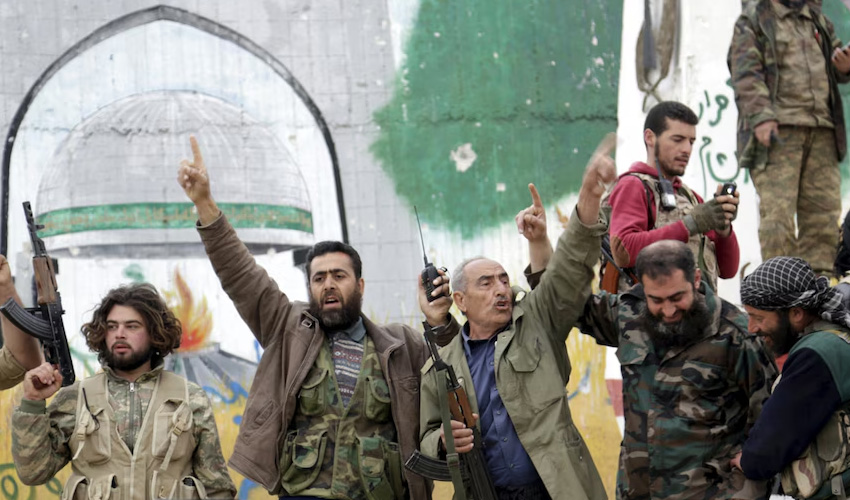A high-level delegation of US diplomats has arrived in Syria to engage directly with the new Islamist-led government, marking the first formal diplomatic mission to Damascus since the start of the Syrian civil war in 2011.
The visit follows the recent fall of President Bashar al-Assad after a swift offensive by opposition forces earlier this month.
The delegation includes Barbara Leaf, the top US State Department official for the Middle East, Daniel Rubinstein, an experienced diplomat specializing in Arab affairs, and Roger Carstens, the US Special Presidential Envoy for Hostage Affairs. Their primary goals are to discuss the future direction of Syria under its new leadership and to seek information on missing Americans, including journalist Austin Tice, who was abducted in 2012.
Engagement with Hayat Tahrir al-Sham (HTS)
The diplomats are scheduled to meet with leaders of Hayat Tahrir al-Sham (HTS), the Islamist group now in power, despite its designation as a terrorist organization by the US. The delegation will also engage with civil society groups, activists, and representatives from minority communities to assess their perspectives on rebuilding Syria.
A State Department spokesperson emphasized that the US aims to support Syrians in creating a non-sectarian, inclusive government that respects the rights of all communities.
HTS leader Ahmed al-Sharaa, known as Abu Mohammed al-Jolani, has called for unity, protection of minorities, and disbanding of rebel factions since Assad's ousting. However, US Secretary of State Antony Blinken has expressed caution, stating that Jolani's sincerity remains unproven.
“There are no guarantees,” Blinken noted in a recent interview. “Absent our engagement and leadership, history suggests the cycle of authoritarianism could repeat.”
International reactions
The visit follows a joint statement by Western and Arab nations, along with Turkey, calling for a representative and inclusive Syrian government. Meanwhile, other global powers, including France and Germany, have resumed diplomatic relations with Damascus. The French embassy in Damascus reopened for the first time since 2012, while the US continues to operate through the Czech Republic in Syria.
President-elect Donald Trump, set to take office soon, has signaled a reluctance for deeper US involvement in Syria. He has described Assad's downfall as an “unfriendly takeover” by Turkey, which has supported HTS but opposes US alliances with Syrian Kurdish groups.
Syria grappled with the aftermath of its decade-long conflict, displacement crises, and the challenges of nation-building under new leadership.



























